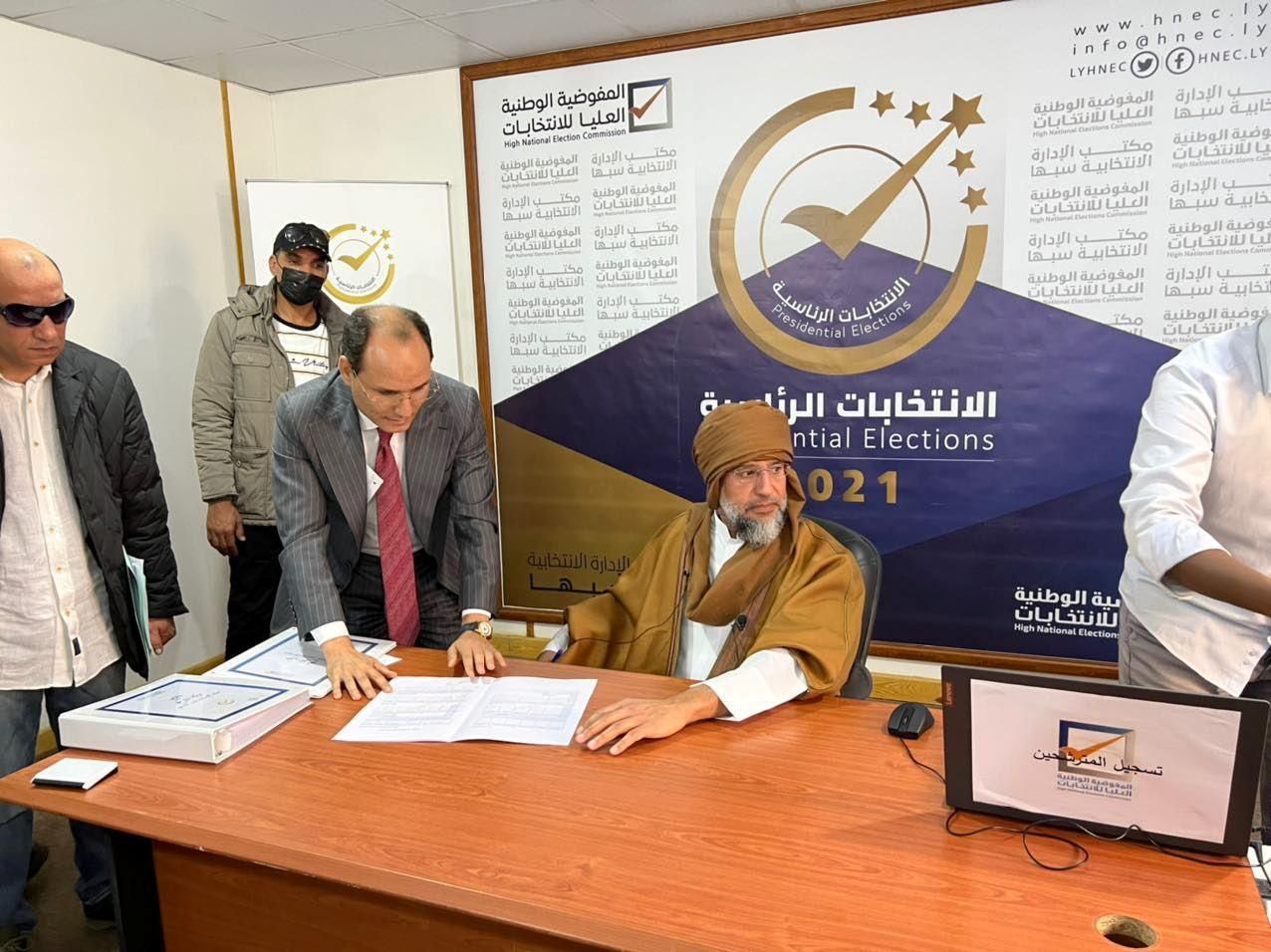Qaddafi redux in Libya? From the progeny of one dictator to another. Ten years after the death of former Libyan strongman Muammar Qaddafi, his son Saif — dressed in Berber robes eerily similar to his father's classic outfit — registered on Sunday to run for president in the December 24 election. With his comeback, Saif Qaddafi hopes that those nostalgic for the stability of the previous regime, as well as Libyans tired of the decade of chaos and civil war that followed his dad's ouster, will give him their vote. But if the elections happen at all, which is quite uncertain due to ongoing bickering between factions on the rules and schedule, Qaddafi's son faces long odds. For one thing, it's unlikely he will campaign in public because he fears for his safety and has an outstanding ICC arrest warrant for crimes against humanity (a Libyan court also sentenced him to death for war crimes in 2015, although that ruling was later overturned). For another, he'll be up against tough rivals backed by different groups of foreign powers like General Khalifa Haftar, a warlord supported by the Gulf states and Russia; Aguila Saleh, the influential parliamentary speaker; and PM Abdul Hamid Dbeibah, head of the UN-backed National Unity Government.
More from GZERO Media
Pope Francis greets the crowd during a short appearance at Gemelli hospital, in Rome, on Sunday, March 23, 2025.
Listen: Investors and business leaders alike are starting to realize they may have gotten Trump 2.0 wrong. It turns out President Trump actually meant what he said.
President Trump's volatile economic policies are roiling markets and scaring investors. Does he care? Ian Bremmer explains.
President Donald Trump talks to the media next to Tesla CEO Elon Musk, with a Tesla car in the background, at the White House on March 11, 2025.
Elon Musk may have a big day ahead. On Friday, according to the New York Times, he’ll be made privy to war plans for a US military conflict with China. But President Donald Trump has denied that Musk will be briefed on China during his visit.
Stranded passengers at Heathrow Terminal 5 in London on Friday, March 21, 2025.
President Donald Trump signed an executive order on Thursday stripping away much of the Department of Education, but he stopped short of dismantling it completely. On Friday, he announced that the federal student loan portfolio and the department’s “special needs” programs were being moved to other federal agencies.
The countdown is on! On Sunday, Prime Minister Mark Carney dissolved parliament and called a snap federal election that promises to be one of the most consequential — and hotly contested — in recent Canadin history.
Indonesian activists are protesting a new law allowing active-duty military members to serve an expanded role in the civilian government — a move they warn could bring back the days of military repression under strongman leader Suharto.
Though European leaders have been excluded from Donald Trump’s plan to end the war in Ukraine, meetings on Thursday in Brussels and London aimed to demonstrate Europe’s continuing commitment to supply Ukraine with the weapons it needs to repel Russian invaders.
Have you stayed atop GZERO’s news coverage this week? Here’s your chance to prove it.
